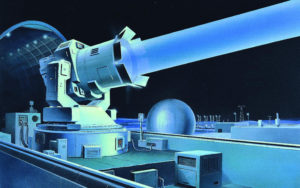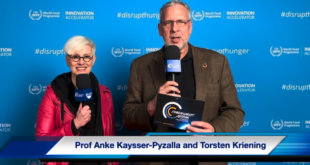
The United States has accused Russia at the United Nations of developing a range of anti satellite (ASAT) weapons, to include air-launched missiles, lasers, and satellites capable of rendezvousing with their targets in orbit, despite Moscow’s attempts to introduce a proposed treaty that would ban such weapons.
“The United States is concerned with what appears as very abnormal behavior by this so-called ‘space apparatus inspector,” cautioned Yleem Poblete, assistant secretary for arms control, verification, and compliance, in remarks at the UN last week. “We do not know for certain what it is and there is no way to verify its mission. Moreover, Russian intentions with respect to this satellite are unclear.”
Poblete believes this amounts to a “troubling development—particularly, when considered in concert with statements by Russia’s Space Troops Commander which highlighted that ‘assimilat[ing] new prototypes of weapons [into] Space Forces’ military units’ is a ‘main task facing the Aerospace Forces Space Troops,'” according to a report in The Washington Free Beacon.
Poblete is also concerned with statements from senior Russian military officials which indicate Russia’s Space Troops have taken delivery of a “combat laser system.”
“Further, Russia claims to be developing missiles that can be launched from an aircraft mid-flight to destroy American satellites. To the United States, these developments are yet further proof that Russian military actions do not match their diplomatic rhetoric,” she continued.
Poblete warned that “the drafters of the NFP resolution and the draft Treaty on the Prevention of the Placement of Weapons in Outer Space (or PPWT) are developing capabilities that are designed to attack satellites in space—the very thing that they claim to seek to prohibit.”
Poblete, on behalf of the United Stats, also urged members to reject the treaties Russia has proposed.
“The draft PPWT and the NFP resolution are not the right mechanisms for achieving … [our] goals,” she said. “They are fundamentally flawed proposals advanced by a country that has routinely violated its international obligations. That is why the United States continues to urge countries not to support the façade of Russia’s Potemkin resolution and instead vote ‘No.'”
 SpaceWatch.Global An independent perspective on space
SpaceWatch.Global An independent perspective on space




